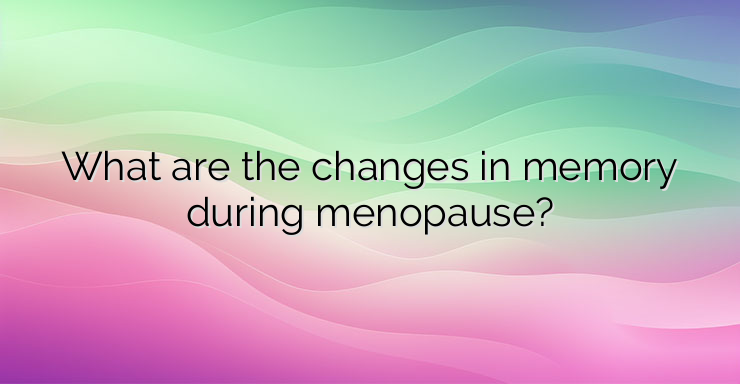When menopause is reached, many women experience memory impairment and difficulty concentrating. Memory impairments and difficulty concentrating when dealing with complex information may be associated with the various stages of menopause. This is confirmed by a new study conducted by American researchers, which reveals that cognitive decline can continue after menopause. What causes memory disorders? It is generally accepted that both memory and the ability to learn new things and understand complex concepts decline with age. However, several large-scale studies have shown that menopause is also a risk factor for female-specific cognitive decline, regardless of chronological age and concomitant menopausal symptoms such as depression, anxiety, or hot flashes. Some authors suggest that the cause of this memory impairment may be the decrease in estrogen levels that occurs during menopause. Optimal estrogen levels have been found in some studies to help prevent the onset of dementia and Alzheimer’s. What is the significance of the stages of metopause? The study, published in Menopause, the journal of the North American Menopause Society – NAMS, was conducted with the participation of more than 440 women and assessed changes in cognitive abilities during the various stages of menopause. The average age of the women participating in the study was 42 years at the start of the study. The main aim is to determine the duration of the cognitive changes that occur between premenopause – the stage before menstruation stops and perimenopause – when a woman is close to the onset of menopause and changes in the menstrual cycle and other symptoms begin to appear. The study participants had to complete various tests to assess their mental abilities, which included tests of verbal learning, memory, information processing speed, verbal fluency, motor skills and executive functions. Tests were performed at the first visit, before the onset of menopause, and every 2 years thereafter. The results show that the stage of menopause a woman is in is a determining factor in her mental capacity and that its deterioration continues into the post-menopausal period. Memory Researchers note that there is a decline in learning, memory and attention span from premenopause to early perimenopause and from premenopause to postmenopause. The areas most affected were learning and memory. The decline in attentional capacity, although less significant, continues into the postmenopausal period. Many of these changes reach a clinically significant level of cognitive impairment, the authors note. Sources: https://www.sabervivirtv.com/ginecologia/menopausia-puede-provocar-olvidos-falta-atencion_5259 https://journals.lww.com/menopausejournal/Citation/2021/04000/Cognitive_changes_during_the_menopausal.5.aspx


Leave a Reply